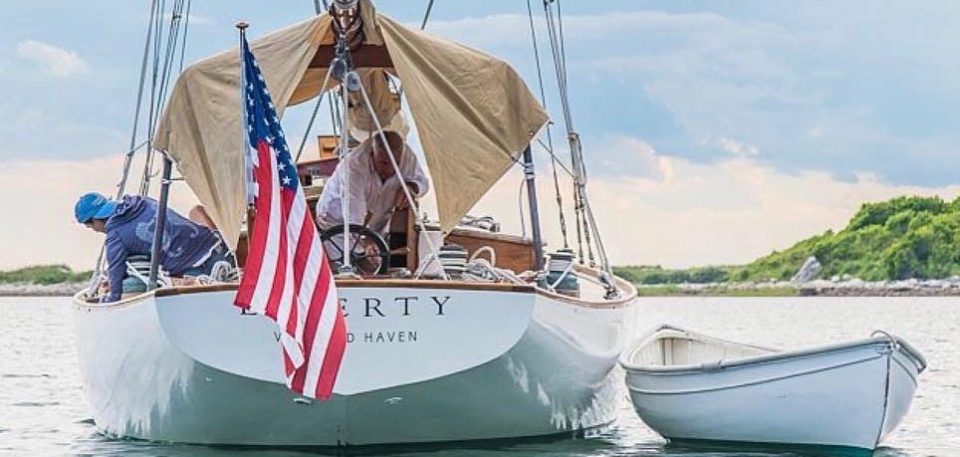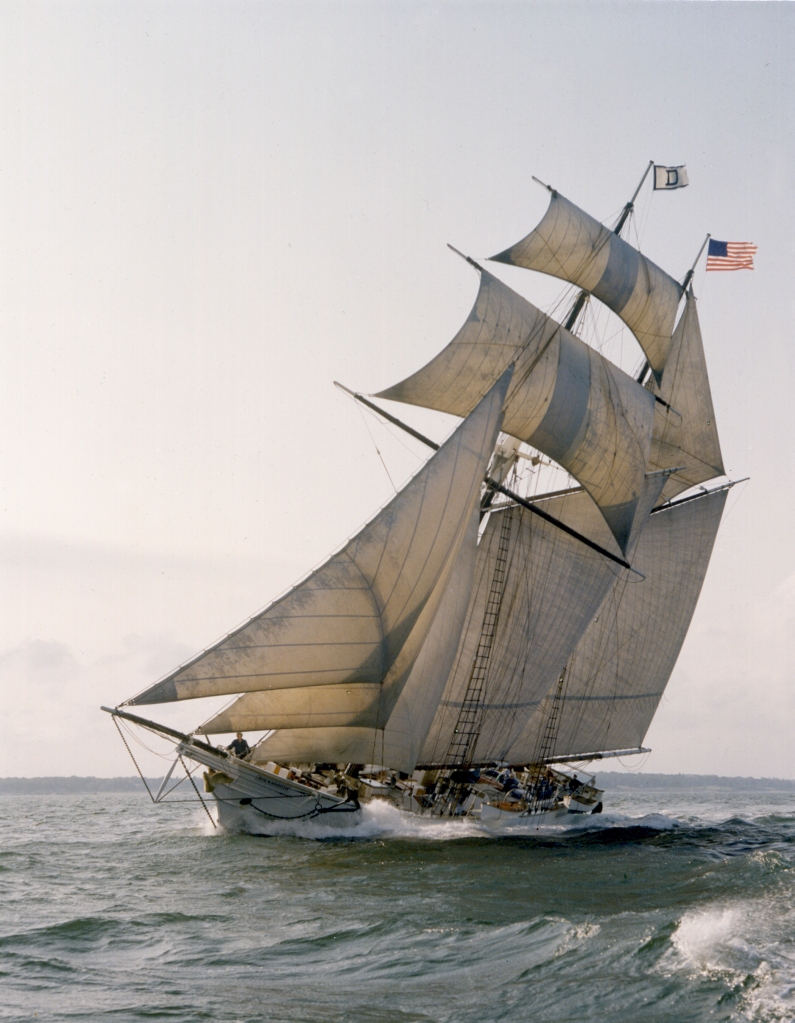An off-islander by birth, Herb Custer Jr. might as well have been a native. Charter fishing brought him to the Vineyard on a fishing trip. He lived his long life as an islander, fitting the mold perfectly and comfortably, no trimming necessary. Absent a permanent political class, islanders have for centuries found their leaders among the house carpenters, farmers, fishermen, shopkeepers, mechanics, police officers, real estate brokers, innkeepers, the occasional physician, gardeners, and school teachers among us. Herb discovered for himself that he was a match for this sort of life rhythm, common in Vineyard towns throughout the 20th Century.
Herb, who died on August 17 this year at 90, earned his living as a sailor, shellfisherman, and fishing guide. He served for years on the town planning board, the land bank, and the shellfish advisory council, but also, and especially, as a school teacher and administrator. In that role, Herb left a lasting mark on the school system, and particularly on the students he taught, because he saw when most folks didn’t that life might be lively, productive, and rewarding for young people who learned vocational skills that have come to be prized today in the Vineyard’s roaring 21st Century economy. Such educational goals for Vineyard students under his care made sense to Herb, because they made sense in his own life.
Sometimes I, a newspaper guy, needed to talk with Herb during his four years (1991-1995) as superintendent of Vineyard schools. When scallop season was on in Vineyard Haven, I didn’t bother chasing Herb at his office. I would find him tidying up his boat before selling his day’s catch.
“What do you want?” he’d say. And, then, “Grab the other side of this basket.” And we would talk. Sometimes we talked only about boats and sailing, or shellfishing. But, sometimes he was wrestling with some budget or personnel problem, and one could hear him working through it as he talked. He never complained about school personnel he oversaw. His genial modesty and unflinching resolution discovered solutions to the many thorny issues that arose during his tenure in what was, and is, a very complicated and very territorial, multi-town school system. I imagined that whatever he was fishing for after school, and whether it was a good or a bad day, it finished on a soothing note and perhaps the answer he was looking for.
Vineyard life has sped up, become more crowded and more fraught since Herb was teaching and fishing. Still, his steady way of going, his determination and diligence, made a match then and with luck will do so again.



